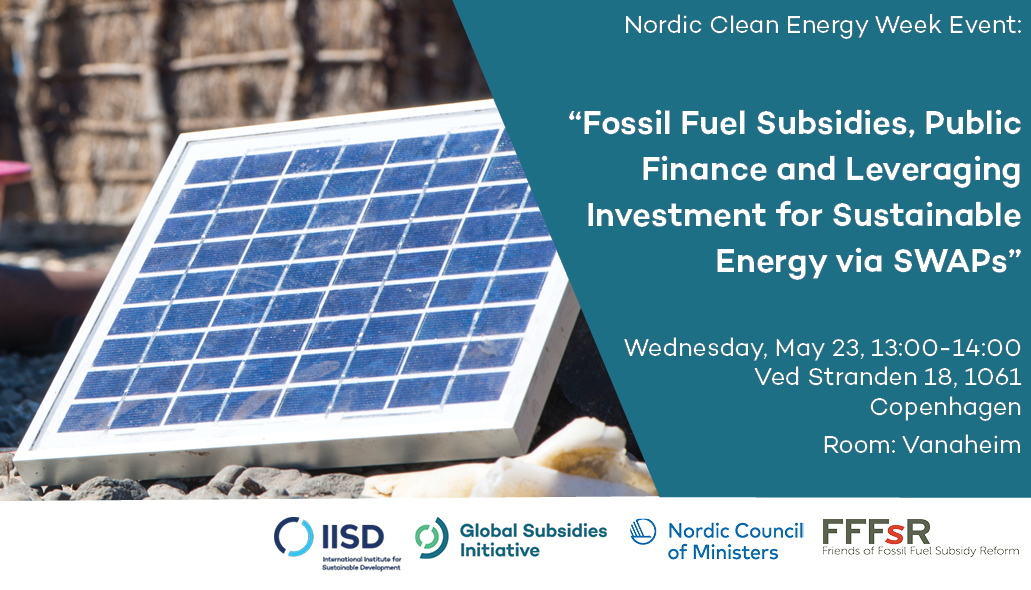Fossil Fuel Subsidies, Public Finance and Leveraging Investment for Sustainable Energy via SWAPs
Fossil fuel subsidies increase energy consumption and act as a barrier to clean energy technologies. As part of the Nordic Clean Energy Week, this event will discuss the potential for reform of fossil fuel subsidies and reallocation of a proportion of the savings to fund the transition to clean energy

Fossil fuel subsidies increase energy consumption and act as a barrier to clean energy technologies. As part of the Nordic Clean Energy Week, this event will discuss the potential for reform of fossil fuel subsidies and reallocation of a proportion of the savings to fund the transition to clean energy.
Highlights
- At Nordic Clean Energy Week in Copenhagen on May 23, the Global Subsidies Initiative (GSI)/International Institute for Sustainable Development (IISD) will host a panel discussion on clean energy subsidy swaps, using savings from subsidy reforms to fund the clean energy transition.
- The event will discuss the experience of fossil fuel subsidy-reforming governments and Nordic donors, including the Government of Denmark and the Nordic Council of Ministers, in supporting work aimed at promoting fossil fuel subsidy reform.
- From the non-governmental perspective, Peter Wooders, Group Director, Energy, IISD, will discuss experiences from GSI's SWAPs project promoting clean energy through subsidy reform.
- The event should be attended by delegates from the Clean Energy Ministerial and Nordic Clean Energy Week interested in solutions to funding the energy transition through fossil fuel subsidy reform.
More information and registration details are available here.
Upcoming events
Building Bridges: The State of Nature-Based Investments
Join us for a panel at the Building Bridges conference in Geneva, Switzerland, to discuss the state-of-play of nature-based investments and the potential opportunities they present.
Through Her Lens: Women leading change in sustainable agriculture and market inclusion
Despite the critical role that women play in agricultural production, they still do not have equal access to global agricultural supply chains on terms that benefit them.
A Municipal Perspective on the Value of Natural Infrastructure
This webinar will showcase examples the cost-effectiveness of natural infrastructure from a municipal perspective. Focusing on what municipalities need—what evidence and numbers they rely on, and what tools and planning processes are required to ensure that natural infrastructure is assessed alongside traditional infrastructure for cost-effectiveness.